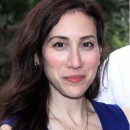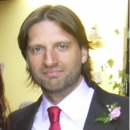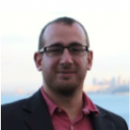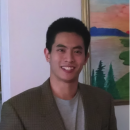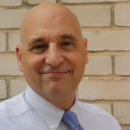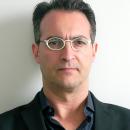Week of:
August 14, 2017
Per our last weeknote, the CTSP team has developed a deceptively-simple one page document which describes our recommendations for the treatment development system, and we have been taking those ideas to meetings, conferences, and interviews to discuss them with any and every stakeholder in the system. What we’ve found concerning one specific recommendation, called “Get the Word Out”, has been both interesting and baffling.
“‘Get the Word Out” is about addressing the fact that many Americans do not understand how treatments come to market; we call this lack of understanding about the process called, somewhat crudely, ‘sausage making’. Just as many Americans are oblivious or don’t want to know what goes into their sausage, many are oblivious as to how treatments are developed and come to market. Young people don’t view treatment development as a career option, and even doctors, nurses, and pharmacists barely understand the process.
This lack of understanding has so many significant downstream impacts on our country and healthcare system that they are nearly too numerous to explain, so I’ll give you one very basic example that we’ve diagrammed in an oversimplified manner below.
Lack of knowledge about treatment development means that there is 1) little recognition that doing preclinical and clinical research requires special skill sets; 2) lack of guidance from professional societies to high schools, colleges, and graduate schools about how to teach students about treatment development; and 3) general lack of appeal ascribed to preclinical and clinical research jobs by many Americans who don’t see the excitement and reward when compared with other careers in healthcare.
This in turn leads to little desire among young people to learn about treatment development and less incentive for schools at all education levels to offer classes or programs about clinical and preclinical research. In the end, most people complete undergraduate and graduate school without ever having learned about how treatments come into existence; everyone assumes something happens, but all that matters is that they can get their prescription at the pharmacy.
As a result, there is an inordinately small population of people who are prepared and/or willing to work in treatment development, in basic science but especially human subjects research. This adds to the high upfront costs of treatment development, due to ad-hoc education for people who have never heard of clinical trials as an undergrad or didn’t develop the appropriate skills, high turnover among physician investigators who don’t understand what they are signing up for after lack of training in med school, and high burnout rates and turnover among those who do work through staffing shortages in clinical research.
At the very end of the line, high upfront costs of treatment development mean more costs passed onto patients. Lack of education means Americans don’t understand why their prescriptions cost so much and why everyone is arguing over re-importation and drug price negotiations. It means doctors, nurse practitioners, and physician’s assistants who aren’t well-informed and yet are expected to understand formularies and thoughtfully prescribe treatments in a way which helps patients balance treatment costs from the moment they begin to practice medicine. Treatment prices remain an unsolvable mystery as long as treatment development remains a mystery.
From our perspective, it’s critical for people to not only understand treatment development, but for the system to more broadly and meaningfully engage everyone. We have a greater role to play in the system beyond consumers-- whether it is sharing health data or participating in disease registries, biobanks, or clinical trials-- we will be prosumers in the treatment development system of the 21st century. Yet none of that is possible if people don’t understand how the system works or why their participation matters.
Everyone we’ve spoken with inside the system agrees that it is critical to engage Americans about treatment development, but how can we complement short-term “awareness” days, weeks, and months; educational walks and runs; and social media activism with long-term interventions? When we ask that at meetings, people’s face go blank and they sit quietly. Education always seems like a great idea but too few people rally their resources around it, citing reasons like curricula are already too full, no one has time, etc.
While those things are true, we would argue the only way to pull back the curtain on the mystery of treatment development is to educate. The only way to innovate and drag the system into the 21st Century is to have more minds, especially young minds, thinking about how to improve it.
As a lecturer at Johns Hopkins University, I believe that undergraduates preparing for careers in science and medicine should understand how the entire research system works, not just their lab’s tiny mouse-poop filled corner of it. People say it takes a village to raise a child, but I would tell my students that it takes nations to develop new treatments.
I want my students to know how mTOR inhibitors, such as rapamycin and its analogs, were discovered on Easter Island also known as Rapa Nui, a Chilean island in the southeastern Pacific Ocean. This island is famous for its giant stone statues (see below), not for the 1972 discovery of a macrolide in the soil by a Canadian scientific team gathering plant and soil samples. I want them to know how that team shared (yes shared) their soil samples with a microbiology team at Ayerst-McKenna-Harrison in Montreal (later known as Wyeth).
Photo by: Horacio_Fernandez
A team at Ayerst led by Dr. Surendra Sehgal, PhD, who was born in Pakistan, trained in Canada, and later became a proud dual citizen of Canada and the US, isolated a new bio-chemical compound that not only had anti-fungal properties but also suppressed the immune system. Following his intuition that the compound had additional properties, Dr. Sehgal sent a sample of what later became known as rapamycin to the National Cancer Institute (NCI) Developmental Therapeutics Program and requested anti-tumor activity screening. Rapamycin had impressive activity against solid tumors. After their research program ended at Ayerst, Dr. Seghal and a small contingent of researchers continued to push the rapamycin’s development forward at Princeton University.
What follows in the rest of this story is decades of discoveries and millions of lives extended and saved. Rapamycin was developed into Rapamune, an immunosuppressant drug for patients as prophylaxis following organ transplantation to prevent organ rejection, which received priority approval by the FDA and regulatory agencies around the world. The compound’s properties drove research on the mTOR pathway, which transmits signals and controls a range of vital biological processes including cancer development. Various mTOR inhibitors are now approved for the treatment of advanced breast cancer, pancreatic neuroendocrine tumours, advanced renal cell carcinoma, and SEGA in patients with tuberous sclerosis; research for other forms of cancer continue to this day. Rapamycin itself is also used to prevent coronary artery re-stenosis and for the treatment of neurodegenerative diseases.
One compound impacts millions of lives, including the lives of the brave breast cancer patients I had the honor of treating while working in clinical research— mothers who only wanted to live long enough to see their children graduate college and get married.
The development of this compound took thousands of people from academia, industry, and government from all over the world and thousands more patients volunteering for hundreds of clinical trials. And yet, so few people know this exciting story or the stories of many others that really provide a window into how the treatment development system works. It works through sharing and buying, failure and success, and most of all through the fierce tenacity of scientists like Dr. Seghal and his team and patients like mine.
So while our recommendation to educate people about the clinical trials system makes some people yawn, it makes me yearn to tell these stories to anyone who will listen.

